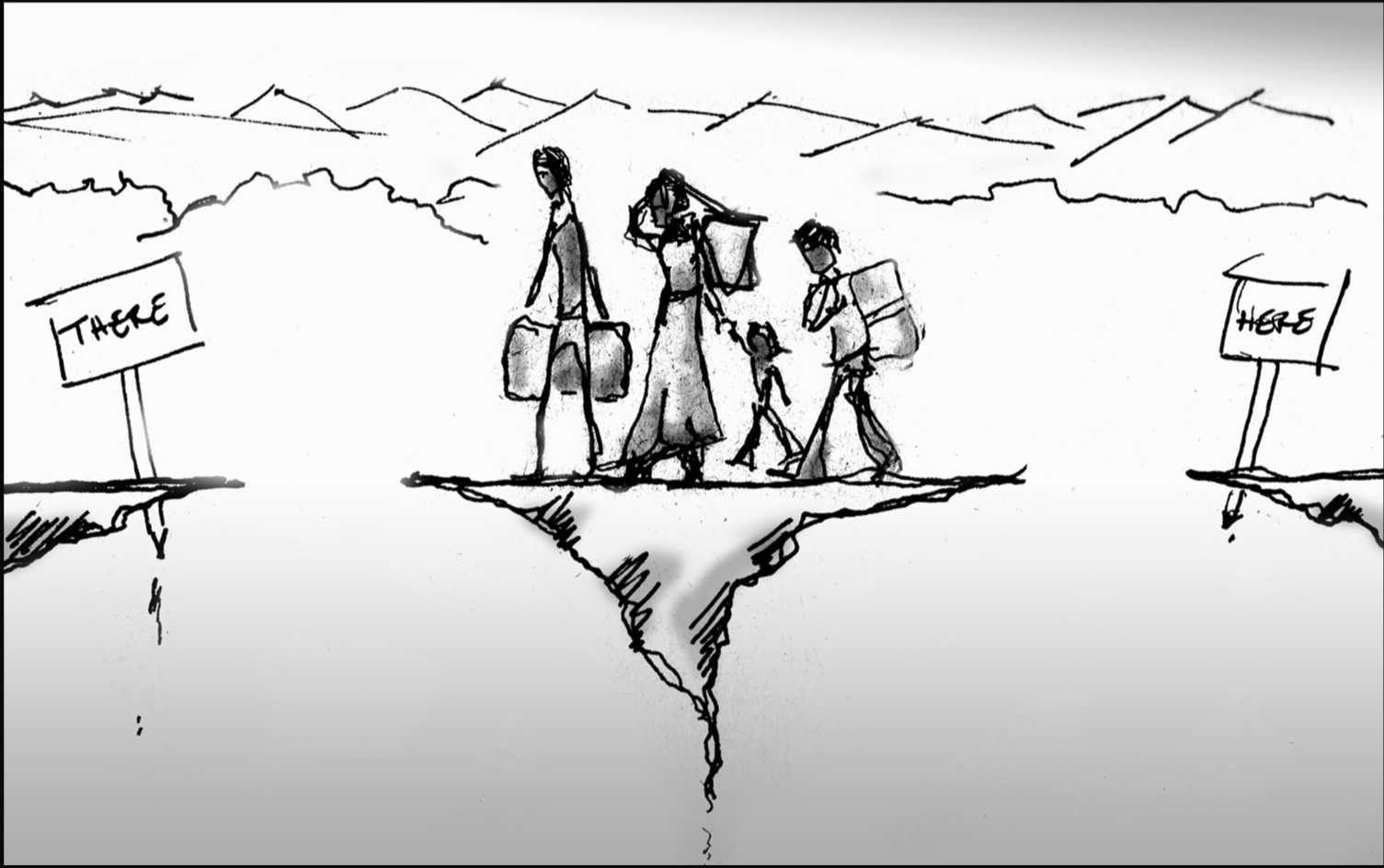
Last week broke my heart.
While a third of Moria burns to a cinder, my classmates and me sit in a lecture hall and learn about how to build something resembling sanitary facilities in humanitarian emergencies, 1 latrine for 100 people in an acute scenario, holes and trenches in the ground, as everything else takes too long and will be built as soon as resources allow. In March 2020, while Europe was starting to shut down to contain SARS-CoV-2, 1300 people in Moria shared one tap. One. Single. Tap.
While black smoke rises over Lesbos, we hear that measles is one of the leading causes of death in displaced children, and I shrink in my seat. My home region South Tyrol has one of the worst measles-mumps-rubella vaccination rates in children under 5 in Europe - 70.8% in total, with my home town reaching the sad fame of a vaccination rate as low as 65.3 % (as of November 2019). This year, children without a complete vaccination catalogue are not allowed to attend nursery or kindergarten, which has led to a public outcry. Meanwhile, every fourth displaced child who contracts measles will die. People over here have, luckily, forgotten what it feels like when children die.
While 13.000 people flee their makeshift home that had been built for 2800, one can hear a needle fall in our lecture theatre as we are listening in dead silence to the description of injuries inflicted by torture, and bile rises in my throat. The night before, the foreign minister of Austria had explained in technocratic sobriety that the country that I have lived in for 9 years would send money and goods to Greece if needed, but that accepting displaced people within our borders would send the wrong signal. One day later, when the fresh air of Mt. Snowdon has just cleared my head a bit, the Austrian chancellor reiterates unequivocally that no, no one, not even children will be taken out of the ashes of Europe’s very own hellhole.
I will admit to the bad habit of scrolling through comments on Facebook, which I should really stop as the hate and ignorance flowing through its tidy blue-and-white snippets of clickbait headlines is baffling. But a bad habit is a bad habit, and as if Facebook’s worst wasn’t enough to torture my already beaten altruistic soul, I also scroll through the comments on the website of one of Austria’s biggest national (quite left-wing and progressive) newspapers because they give a quite good impression of the general political mood of the country’s educated and open-minded and, even there, the comments endorsing every word by said politicians are in their hundreds.
So, while conspiracy theorists have once again gained foothold (it‘s all a scheme to Islamise Europe, in case you hadn‘t realised) and altruists protest, most of us do what Society has always excelled at: turn a blind eye, and the poorer and more desperate the subjects the blinder we get.
And if the storm gets too wild and the screams too loud, simply find a threat on your doorstep: the Austrian chancellor Sebastian Kurz, after being inundated with media coverage about his government‘s reaction to the catastrophe in Moria, publicly and with a lot of decorum officially declared the Beginning of the Second Wave of Covid-19 on Sunday. Don’t get me wrong, Austria is experiencing a second wave, cases had been continuously rising for two weeks, and it was clear that the second wave was there. But the moment of the announcement was carefully chosen, and of course in the Sunday evening news no more pictures of burning tents and crying children were to be seen.
According to The Independent, quoting The US News Report, Austria is as of September 2020 the 10th best place in the world to raise a child. Ironically, it seems that for many it is alright that children die if we’re not there to see it - as long as our precious little ones don’t get killed by the evil vaccines that saved our grandparents’ lives.
We all won Fate’s lottery by having been born in peace and relative wealth, in a Union risen from the ashes of two terrible wars whose scars we still carry around with us, in the photo of a killed great grandfather, in fascistic monuments scattered about my home region, in countless history lessons. And yet we, as a society, accept something as inexplicably gruesome as this disgrace to our humanitarian fundamentals named Moria, in the midst of the European Union, a Union built on the principles of solidarity and support.
Of course it‘s complicated, it’s always complicated, of course there is no “one size fits all“-solution. Maybe there is none. However, this is the crux of our wealth, the consequence of raiding the planet and its poorer countries for decades: something so unevenly distributed must lose its balance sooner or later. Whether we like it or not, it is a reality that we will have to accept. But instead, one sticks one’s head into the sand and pretends the world and all its atrocities are not there and can thus neither bother one nor is it one‘s business.
This is the cynicism of our times. We might all sit in the same storm, but not in the same boat - for some it is a cruise ship liner while for many it is a dinghy losing air with the shore still tens of miles away.
Last week broke my heart. It just made it all seem so futile.
And yet, we carry on. Because there‘s always some good somewhere, and always something to be done.
Illustration by Adam West